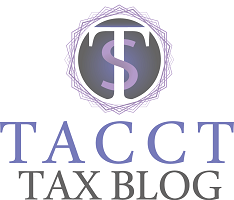
Congress has passed the Tax Increase Prevention Act of 2014 which includes more than 50 tax breaks (tax extenders) that were set to expire December 31, 2013 but have been extended temporarily and retroactively.
So what exactly are tax extenders, anyway? Tax extenders are a broad set of temporary tax breaks that can impact how you’re taxed on everything from your mortgage and tuition to your business. Whether you’re a teacher spending your own money on craft supplies for your class, a student buried in tuition and book costs, a homeowner who sprang for energy efficient improvements to your home or splurged on an expensive purchase, yesterday’s vote could mean more money in your pocket come tax-filing time.
Let’s dig into some of the tax breaks that passed that may help you keep more money in your pocket.
The Educator Expense Deduction – As a teacher you likely spend hundreds of dollars of your own money in order to improve your classroom and create the best learning environment for your students. This could end up being a big burden on your wallet, but with the Educator Expense Deduction, you can claim up to $250 of classroom expenses for supplies, materials, books and software.
Tuition and Fees Deduction – Any student (or parent!) knows that college costs a pretty penny. With the Tuition and Fees Deduction, you can once again deduct expenses related to education, including tuition, books and other supplies, up to $4,000. Pro tip: Don’t procrastinate on paying next quarter’s tuition. If you pay before December 31st you may be able to get a valuable education tax deduction or credit.
Mortgage Debt Relief – Without the mortgage debt relief tax break, taxpayers who have mortgage debt canceled or forgiven on their principal residence would normally be required to pay taxes on the forgiven debt. Under the extended tax law, up to $2 million dollars of forgiven debt on your principal residence is eligible to be excluded from your income in 2014.
Mortgage Insurance Premiums – Did you buy your dream home this year? If your lender required you to buy mortgage insurance when you purchased your home, now you may be able to deduct the amount you paid for the insurance.
Energy Tax Breaks – You went “green” and made energy efficient improvements to your home. The environment thanks you, and now so does your wallet. Homeowners who made energy efficient improvements to their homes in 2014 will still be able to claim the Residential Energy Property Credit. This credit could mean as much as $500.
State and Local General Sales Taxes – If you happen to live in a state like Florida or Texas that doesn’t collect state income tax, or if you happened to make some large purchases and paid substantial local sales tax, you may be in luck. Under this law, you still have the option to choose between deducting state and local income tax or state and local general sales tax.
Qualified Charitable Distributions – Individuals at least 70-1/2 years of age can continue to exclude from income, qualified charitable distributions made from an IRA directly to a qualified charity. This tax law can be a huge tax savings for those very established taxpayers who no longer have bigger tax deductions like home mortgage interest since their homes are paid off.
Achieving a Better Life Experience Act – This new tax law creates tax-favored savings accounts for individuals with disabilities along with tax-related offsets.
List of Extended Tax Breaks
Tax incentives for individuals
Tax incentives for individuals that are extended through 2014 include:
- The Sec. 62 deduction for certain expenses of elementary and secondary school teachers;
- The Sec. 108 exclusion from gross income of discharge of qualified principal residence indebtedness;
- The Sec. 132 provision providing parity between employer-provided mass transit and parking benefits;
- The Sec. 163 treatment of mortgage insurance premiums as qualified residence interest;
- The Sec. 164 deduction for state and local general sales taxes;
- The Sec. 170 special rule for contributions of capital gain real property made for conservation purposes;
- The Sec. 222 above-the-line deduction for qualified tuition and related expenses; and
- The Sec. 408 provision allowing tax-free distributions from individual retirement plans for charitable purposes.
Tax incentives for businesses
Business tax incentives extended through 2014 include:
- The Sec. 41 R&D credit;
- The Sec. 42 temporary minimum low-income housing tax credit rate for nonfederally subsidized buildings;
- The military housing allowance exclusion for determining whether a tenant in certain counties qualifies as low-income under the Housing Assistance Tax Act of 2008, P.L. 110-289;
- The Sec. 45A Indian employment tax credit;
- The Sec. 45D new markets tax credit (and carryovers of the unused limitation are extended through 2019);
- The Sec. 45G railroad track maintenance credit;
- The Sec. 45N mine rescue team training credit;
- The Sec. 45P employer wage credit for employees who are active duty members of the uniformed services;
- The Sec. 51 work opportunity tax credit;
- Sec. 54E qualified zone academy bonds;
- The Sec. 168 provision classifying certain race horses as three-year property;
- The Sec. 168 provision allowing 15-year straight-line cost recovery for qualified leasehold improvements, qualified restaurant buildings and improvements, and qualified retail improvements;
- The Sec. 168 provision allowing a seven-year recovery period for motorsports entertainment complexes;
- The Sec. 168 provision allowing accelerated depreciation for business property on an Indian reservation;
- Sec. 168 bonus first-year depreciation (for certain property with longer production periods, the property must be placed in service before Jan. 1, 2016);
- The Sec. 168 election to accelerate the alternative minimum tax credit in lieu of bonus depreciation (and special rules were added for round 4 extension property);
- The Sec. 170 enhanced charitable deduction for contributions of food inventory;
- The increased expensing limitations and treatment of certain real property as Sec. 179 property;
- The Sec. 179E election to expense mine safety equipment;
- The Sec. 181 special expensing rules for certain film and television productions;
- The Sec. 199 deduction allowable with respect to income attributable to domestic production activities in Puerto Rico;
- The Sec. 512 modification of tax treatment of certain payments to controlling exempt organizations;
- The Sec. 871 treatment of certain dividends of regulated investment companies (RICs);
- The Sec. 897 treatment of RICs as qualified investment entities under the Foreign Investment in Real Property Tax Act, P.L. 96-499;
- The subpart F exception for active financing income;
- The Sec. 954 lookthrough treatment of payments between related controlled foreign corporations under foreign personal holding company rules;
- The Sec. 1202 exclusion of 100% of gain on certain small business stock;
- The Sec. 1367 allowance for basis adjustments to stock of S corporations making charitable contributions of property;
- The Sec. 1374 reduction in S corporation recognition period for built-in gains tax;
- Sec. 1391 empowerment zone tax incentives;
- The Sec. 7652 temporary increase in the limit on cover over of rum excise taxes to Puerto Rico and the Virgin Islands; and
- The American Samoa economic development credit under the Tax Relief and Health Care Act of 2006, P.L. 109-432.
Energy tax incentives
Various energy tax provisions extended through 2014 include:
- The Sec. 25C credit for nonbusiness energy property;
- The Sec. 30C credit for alternative fuel vehicle refueling property;
- The Sec. 40 second-generation biofuel producer credit;
- The Sec. 40A incentives for biodiesel and renewable diesel;
- The Sec. 45 production credit for Indian coal facilities placed in service before 2009;
- The Sec. 45 credits with respect to facilities producing energy from certain renewable resources;
- The Sec. 45L credit for energy-efficient new homes;
- The Sec. 168 special allowance for second-generation biofuel plant property;
- The Sec. 179D deduction for energy-efficient commercial buildings;
- The Sec. 451 special rule for sales or dispositions to implement Federal Energy Regulatory Commission or state electric restructuring policy for qualified electric utilities; and
- The Secs. 6426 and 6427 excise tax credits relating to certain fuels.
Pension plan provisions
Finally, two provisions affecting multiemployer defined benefit pension plans are extended through 2015:
- The Sec. 431 automatic extension of amortization periods; and
- The shortfall funding method and endangered and critical rules under the Pension Protection Act of 2006, P.L. 109-280.
Inflation-adjusted civil penalties
The following penalties will be adjusted for inflation after 2014:
- The Sec. 6651 penalty for failure to file a tax return or pay tax;
- The Sec. 6652(c) penalty for failure to file certain information returns;
- The Sec. 6695 return preparer penalty;
- The Sec. 6698 penalty for failure to file a partnership return;
- The Sec. 6699 penalty for failure to file an S corporation return;
- The Sec. 6721 penalty for failure to file correct information returns; and
- The Sec. 6722 penalty for failure to furnish correct payee statements.



